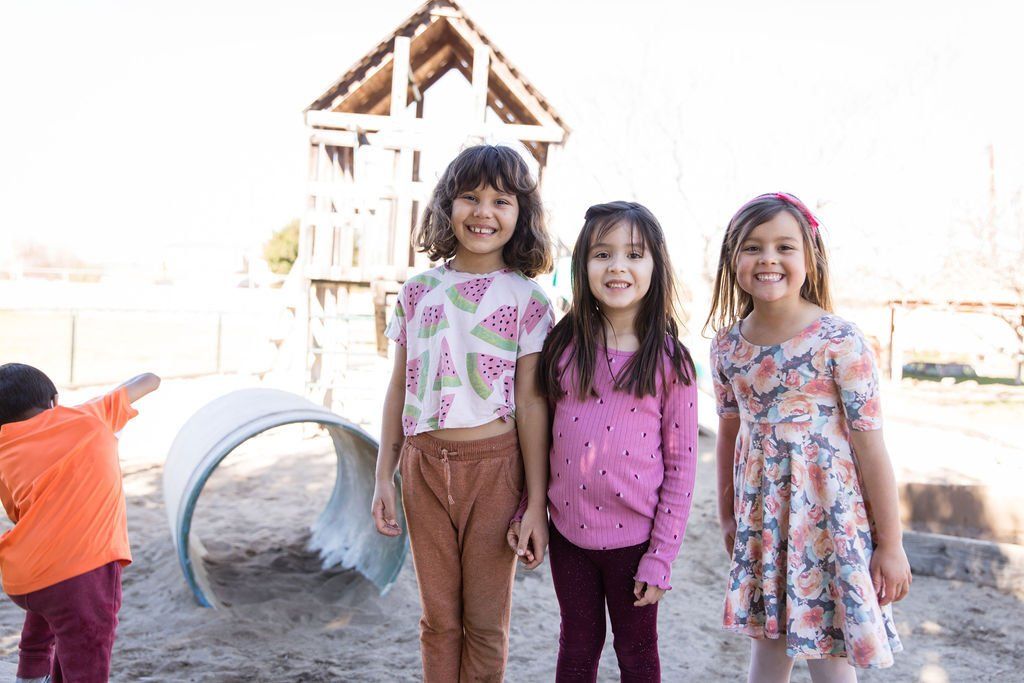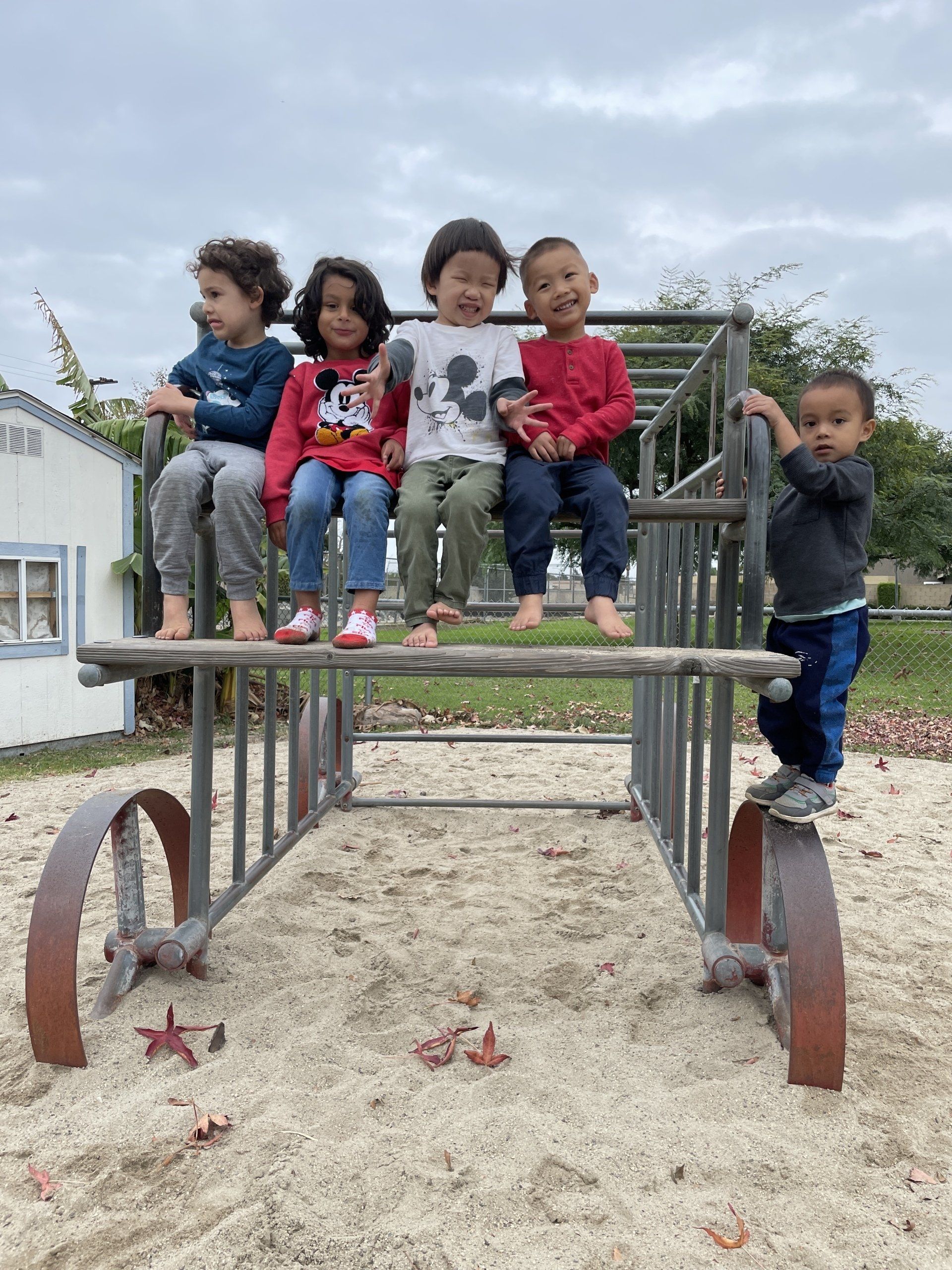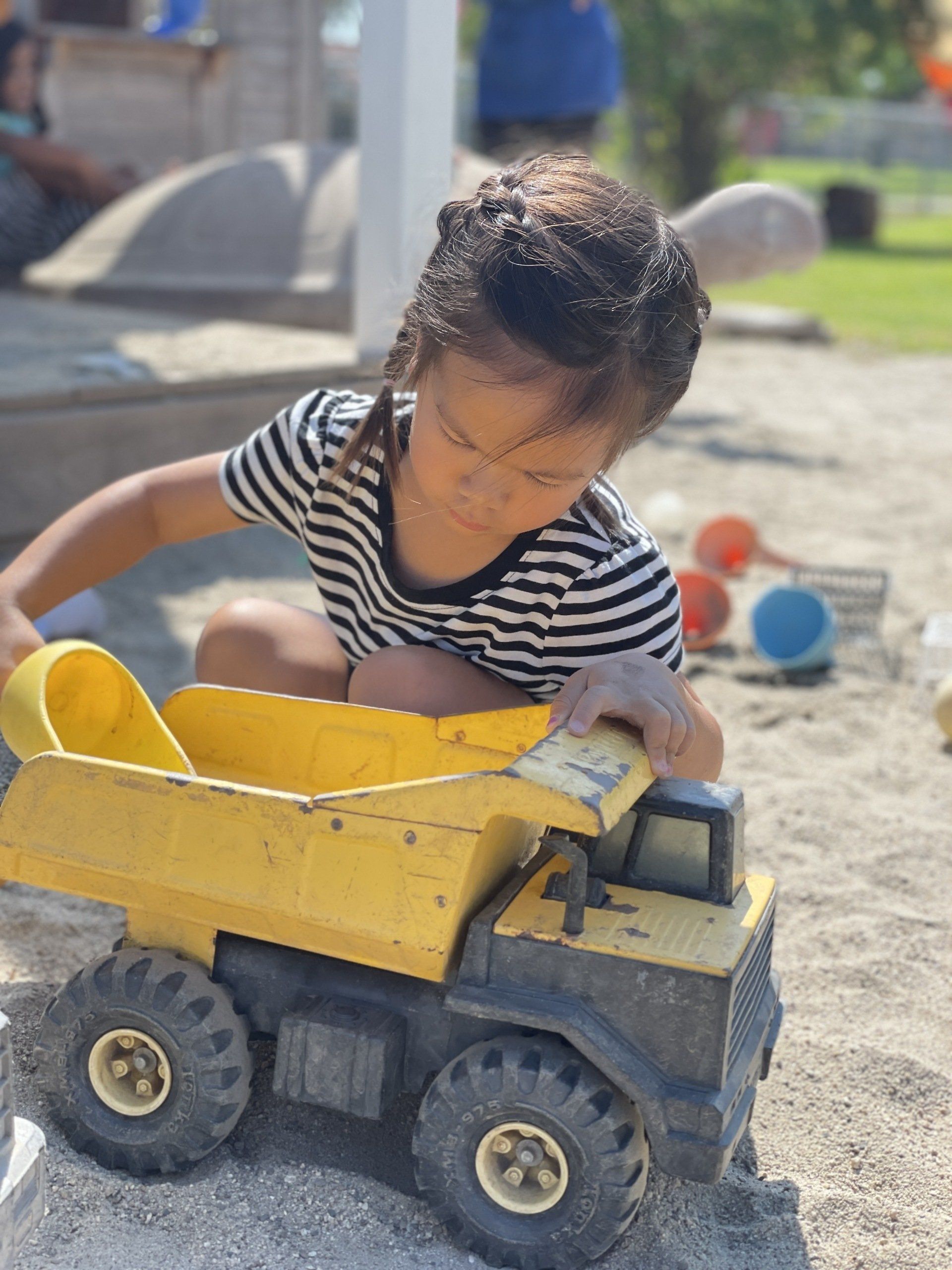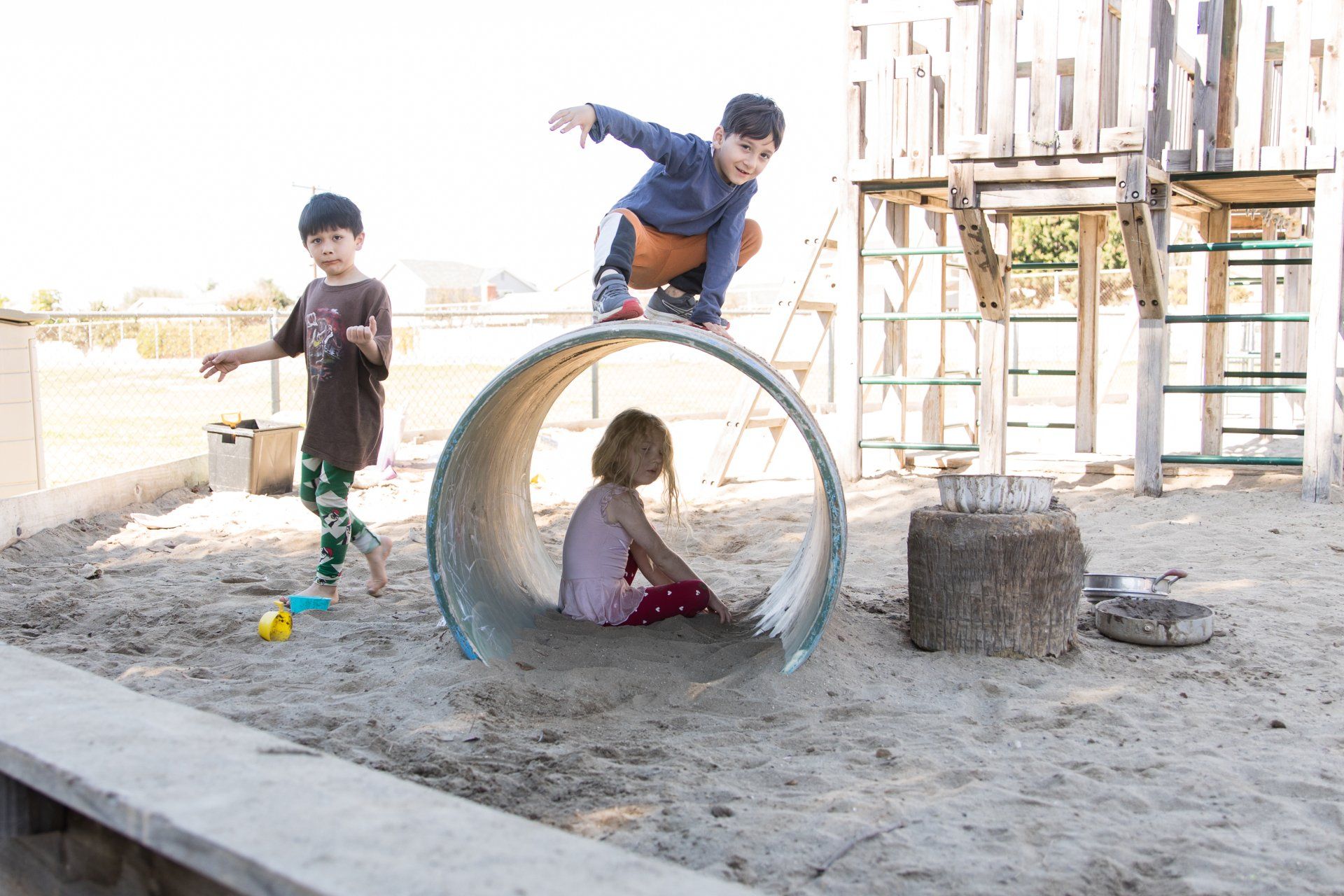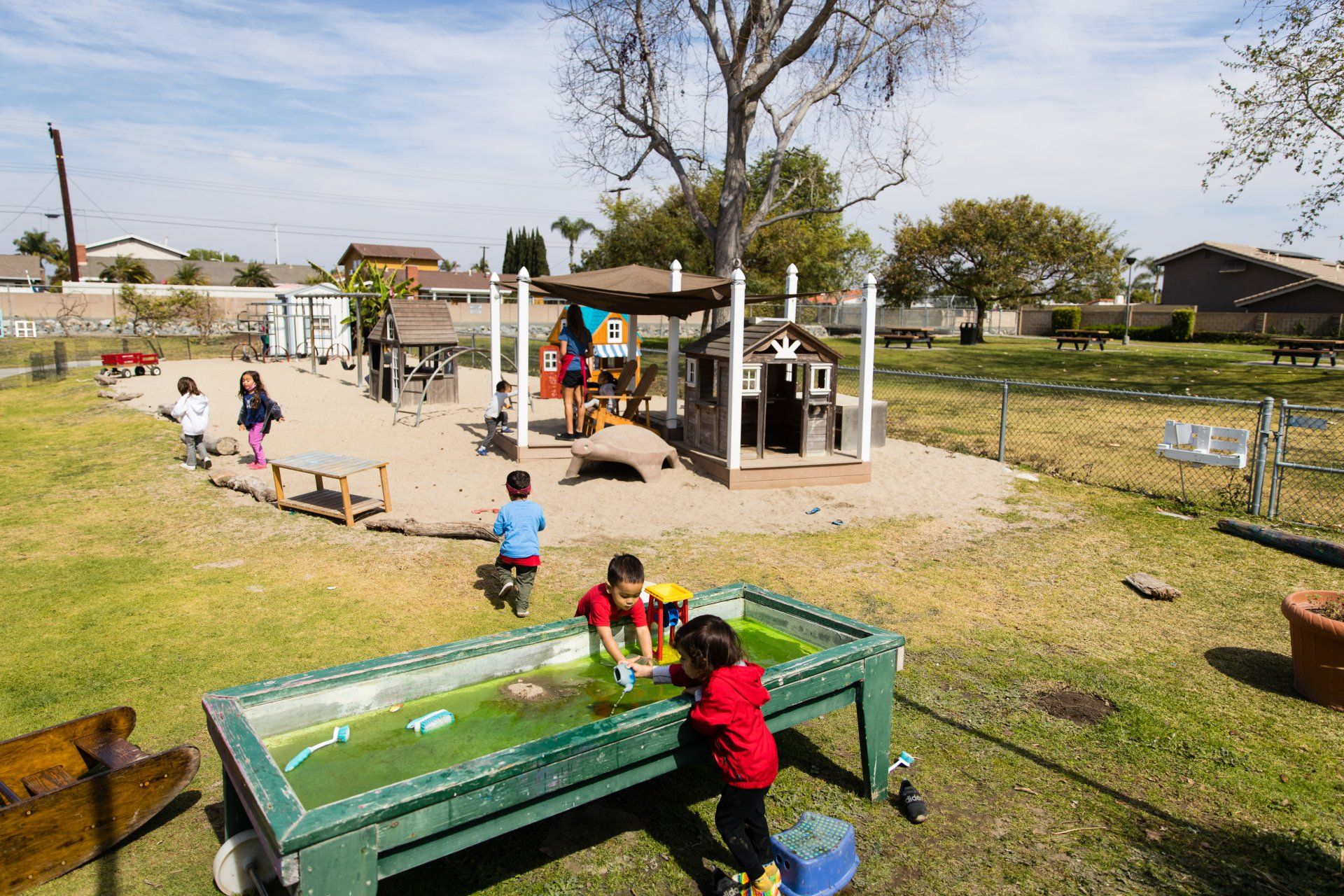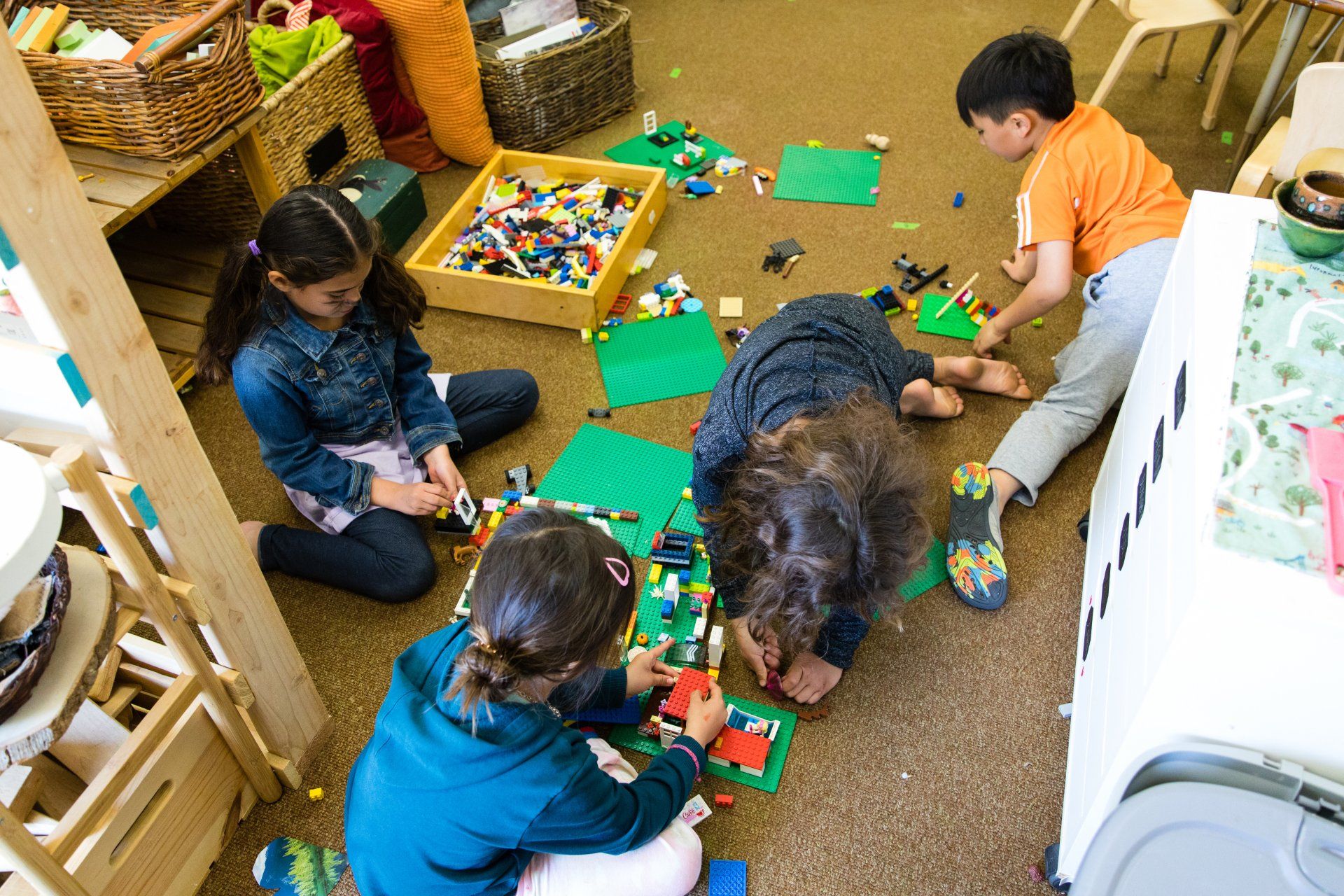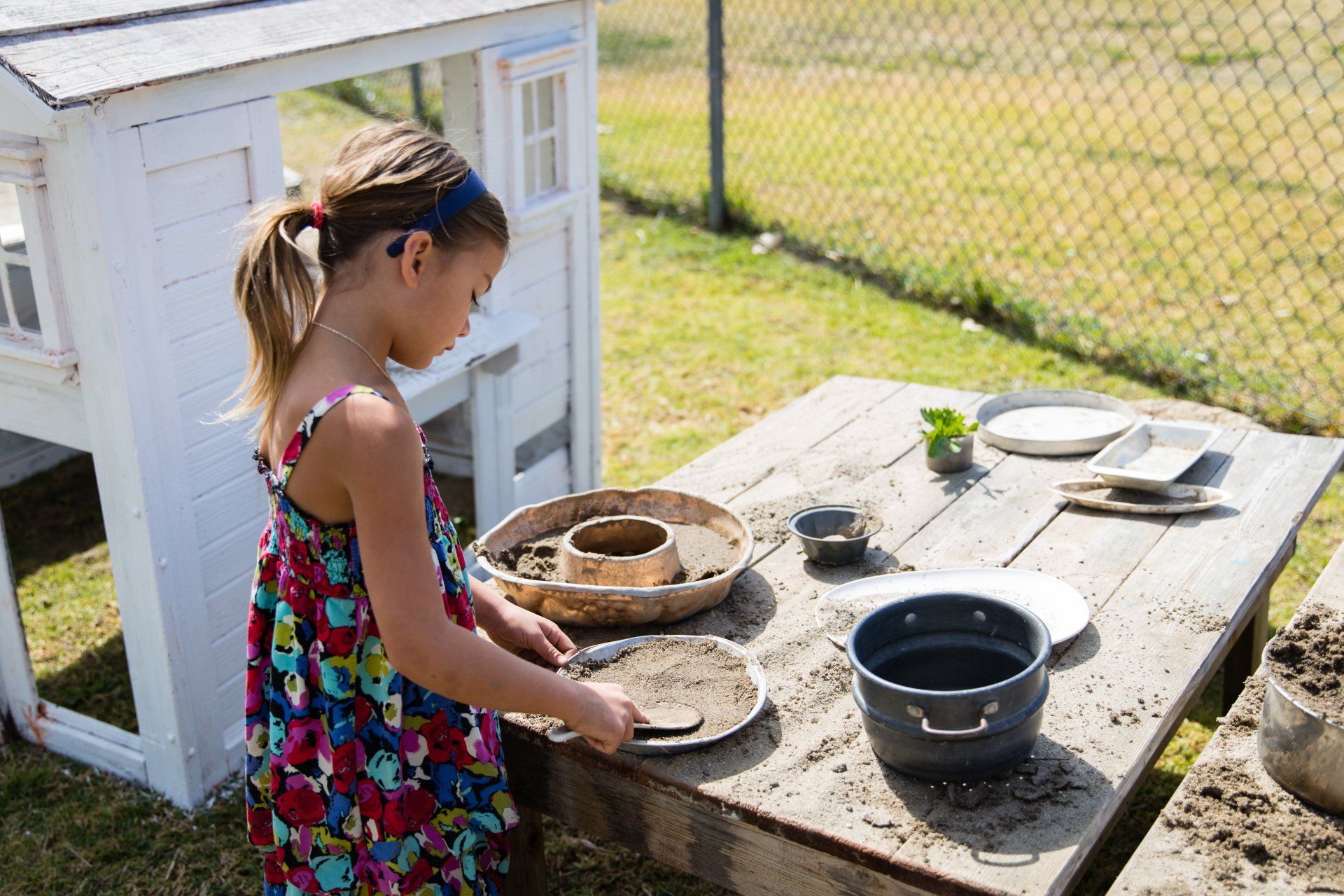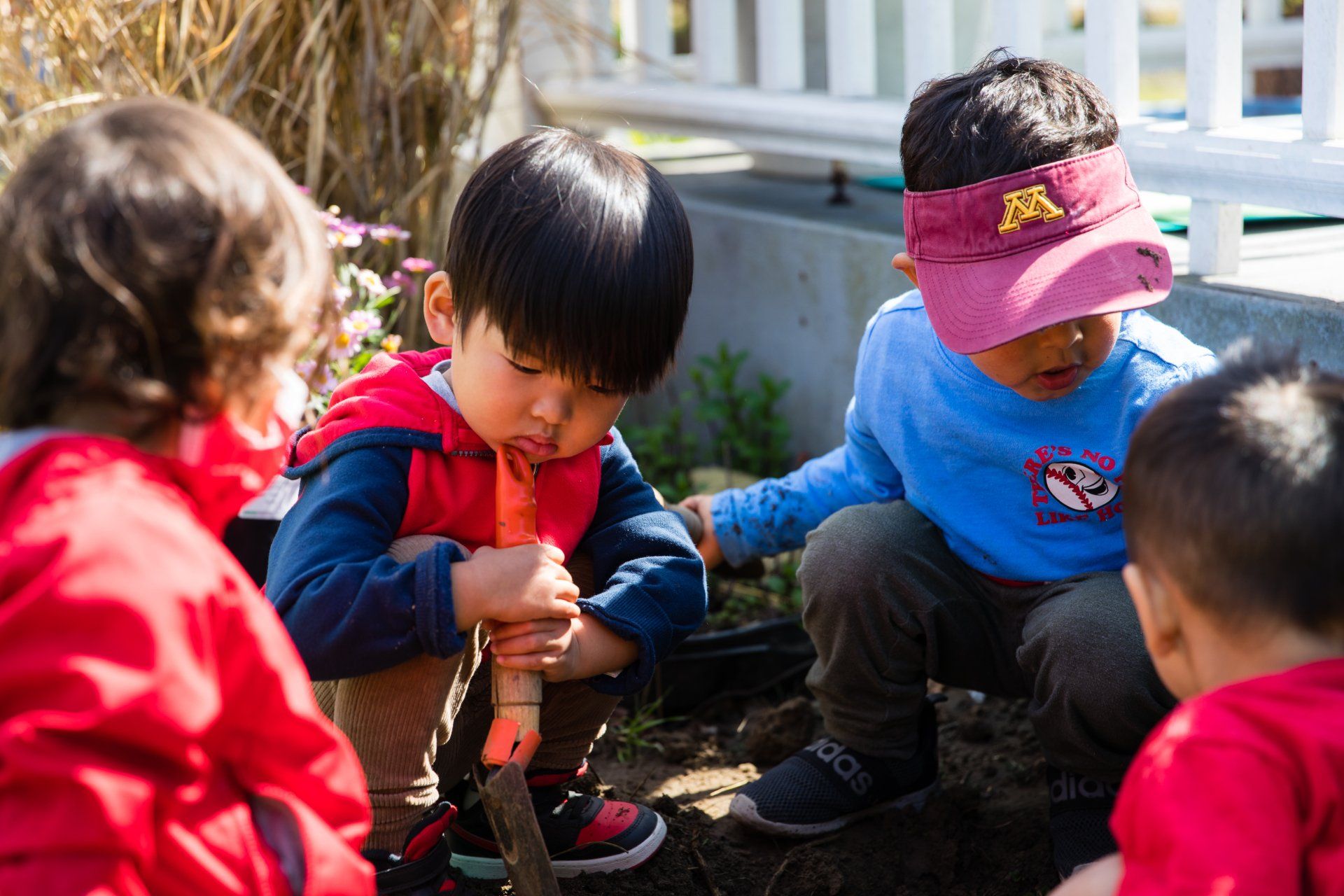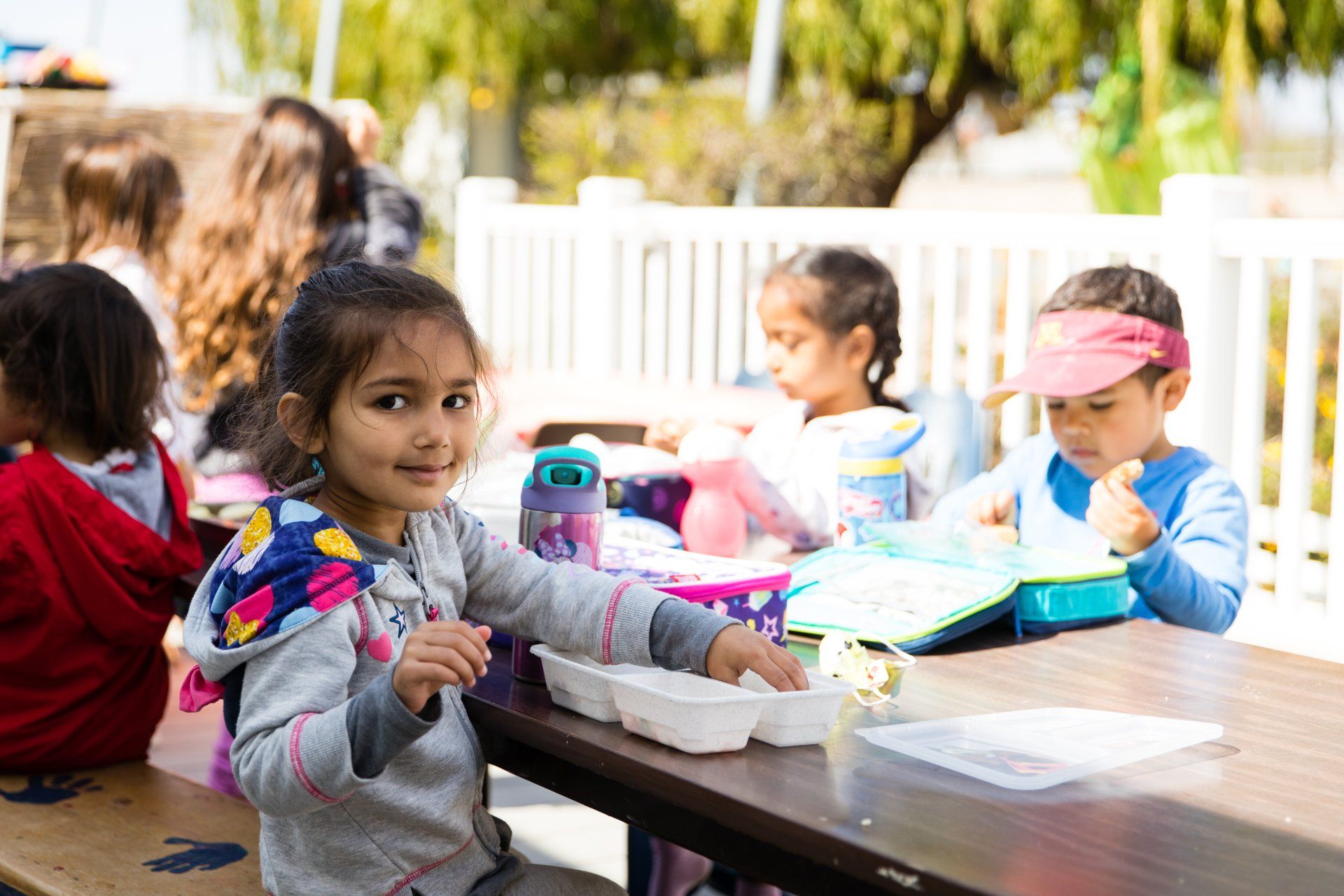Reggio-Inspired
A Reggio-Inspired Approach
Hilltop has long followed a child-centric philosophy in its approach to early childhood education. This philosophy encompasses a play-based curriculum and the belief that a child's school environment should be one of unqualified love, warmth, acceptance and respect. Recently, the staff and parents have explored a similar education philosophy that is known as the Reggio Emilia Approach. In May 2010, the membership have voted to move in the direction of being known as a "Reggio Inspired" preschool. This means we will meld the appropriate elements of the Reggio approach into our current philosophy and approach.
The Reggio Emilia Approach
The Reggio Emilia Approach is an educational philosophy based on the premise that in the early years of development children are forming who they are as an individual. Thus the program is based on the principles of respect, responsibility, and community through exploration and discovery in a supportive and enriching environment based on the interests of the children through a self-guided curriculum.
The Reggio approach derives its name from Reggio Emilia, a city in northern Italy where educators, parents, and children began working together after World War II to reconstruct society and build an exemplary system of municipal preschools and infant-toddler centers. The region has since been recognized to have one of the best municipal educational systems in the world, largely due to its innovative educational approach and the amount of civic resources committed to the system.
The Reggio approach provides a model for more project-based work with an even greater emphasis on child-led curriculum. The goal for this project-based curriculum is to provide even deeper, more meaningful learning for children, as well as inspiration and growth for the teachers.
The Reggio Philosophy
The Reggio Emilia philosophy is based upon the following set of principles:
- Children must have some control over the direction of their learning
- Children must be able to learn through experiences of touching, moving, listening, seeing, and hearing
- Children have a relationship with other children and with material items in the world that children must be allowed to explore
- Children must have endless ways and opportunities to express themselves
What This Approach Means For Children
Early childhood programs that have successfully adapted to the Reggio educational philosophy share that they are attracted to Reggio because of the way it views and respects the child. They believe that the central reason that a child must have control over his or her day-to-day activity is that learning must make sense from the child's point of view.
In essence, the philosophy is based on the idea that if a child's learning is meaningful to the child, the learning is deeper and stays with them. Further , the philosophy advocates for a child's "hundreds of languages"; the idea that children represent ideas and feelings through any of their "hundreds of languages" (expressive, communicative, and cognitive) - words, movement, drawing, painting, building, sculpture, shadow play, collage, dramatic play, music that they systemically explore and combine.
